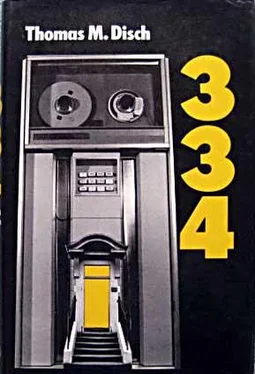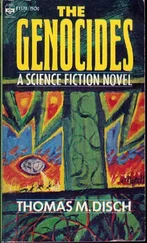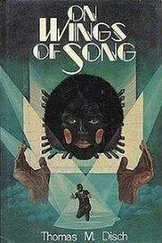M-Day was scheduled for the first weekend in July, a patriotic holiday. the computers would have time to tend to their own needs (which have been variously described as “confession,” “dreaming,” and “throwing up”), and the Battery would be as empty as it ever gets.
Meanwhile their problem was the same as any kids face anywhere during summer vacation, how to fill the time.
There were books, there were the Shakespeare puppets if you were willing to queue up for that long, there was always teevee, and when you couldn’t stand sitting any longer there were the obstacle courses in Central Park, but the density there was at lemming level. The Battery, because it didn’t try to meet anyone’s needs, seldom got so over-populated. If there had been more Alexandrians and all willing to fight for the space, they might have played ball. Well, another summer …
What else? There were marches for the political, and religions at various energy levels for the apolitical. There would have been dancing, but the Lowen School had spoiled them for most amateur events around the city.
As for the supreme pastime of sex, for all of them except Little Mister Kissy Lips and Amparo (and even for them, when it came right down to orgasm) this was still something that happened on a screen, a wonderful hypothesis that lacked empirical proof.
One way or another it was all consumership, everything they might have done, and they were tired, who isn’t, of being passive. They were twelve years old, or eleven, or ten, and they couldn’t wait any longer. For what? they wanted to know.
So, except when they were just loafing around solo, all these putative resources, the books, the puppets, the sports, arts, politics, and religions, were in the same category of usefulness as merit badges or weekends in Calcutta, which is a name you can still find on a few old maps of India. their lives were not enhanced, and their summer passed as summers have passed immemorially. They slumped and moped and lounged about and teased each other and complained. They acted out desultory, shy fantasies and had long pointless arguments about the more peripheral facts of existence—the habits of jungle animals or how bricks had been made or the history of World War II.
One day they added up all the names on the monoliths set up for the soldiers, sailors, and airmen. The final figure they got was 4,800.
“Wow,” said Tancred.
“But that can’t be all of them,” MaryJane insisted, speaking for the rest. Even that “wow” had sounded half ironic.
“Why not?” asked Tancred, who could never resist disagreeing. “They came from every different state and every branch of the service. It has to be complete or the people who had relatives left off would have protested.”
“But so few? It wouldn’t be possible to have fought more than one battle at that rate.”
“Maybe…” Sniffles began quietly. But he was seldom listened to.
“Wars were different then,” Tancred explained with the authority of a prime-time news analyst. “In those days more people were killed by their own automobiles than in wars. It’s a fact.”
“Four thousand, eight hundred?”
“… a lottery?”
Celeste waved away everything Sniffles had said or would ever say. “MaryJane is right, Tancred. It’s simply a ludicrous number. Why, in that same war the Germans gassed seven million Jews.”
“Six million Jews,” Little Mister Kissy Lips corrected. “But it’s the same idea. Maybe the ones here got killed in a particular campaign.”
“Then it would say so.” Tancred was adamant, and he even got them to admit at last that 4,800 was an impressive figure, especially with every name spelled out in stone letters.
One other amazing statistic was commemorated in the park: over a thirty-three-year period Castle Clinton had processed 7.7 million immigrants into the United States.
Little Mister Kissy Lips sat down and figured out that it would take 12,800 stone slabs the size of the ones listing the soldiers, sailors, and airmen in order to write out all the immigrants’ names, with country of origin, and an area of five square miles to set that many slabs up in, or all of Manhattan from here to 28th Street. But would it be worth the trouble, after all? Would it be that much different from the way things were already?
Alyona Ivanovna:
An archipelago of irregular brown islands were mapped on the tan sea of his bald head. The mainlands of his hair were marble outcrop-pings, especially his beard, white and crisp and coiling. The teeth were standard MODICUM issue; clothes, as clean as any fabric that old can be. Nor did he smell, particularly. And yet…
Had he bathed every morning you’d still have looked at him and thought he was filthy, the way floorboards in old brownstones seem to need cleaning moments after they’ve been scrubbed. The dirt had been bonded to the wrinkled flesh and the wrinkled clothes, and nothing less than surgery or burning would get it out.
His habits were as orderly as a polka dot napkin. He lived at a Chelsea dorm for the elderly, a discovery they owed to a rainstorm that had forced him to take the subway home one day instead of, as usual, walking. On the hottest nights he might sleep over in the park, nestling in one of the Castle windows. He bought his lunches from a Water Street specialty shop, Dumas Fils: cheeses, imported fruit, smoked fish, bottles of cream, food for the gods. Otherwise he did without, though his dorm must have supplied prosaic necessities like breakfast. It was a strange way for a panhandler to spend his quarters, drugs being the norm.
His professional approach was out-and-out aggression. For instance, his hand in your face and, “How about it, Jack?” Or, confidingly, “I need sixty cents to get home.” It was amazing how often he scored, but actually it wasn’t amazing. He had charisma.
And someone who relies on charisma wouldn’t have a gun.
Agewise he might have been sixty, seventy, seventy-five, a bit more even, or much less. It all depended on the kind of life he’d led, and where. He had an accent none of them could identify. It was not English, not French, not Spanish, and probably not Russian.
Aside from his burrow in the Castle wall there were two distinct places he preferred. One, the wide-open stretch of pavement along the water. This was where he worked, walking up past the Castle and down as far as the concession stand. The passage of one of the great Navy cruisers, the USS Dana or the USS Melville, would bring him, and the whole Battery, to a standstill, as though a whole parade were going by, white, soundless, slow as a dream. It was a part of history, and even the Alexandrians were impressed, though three of them had taken the cruise down to Andros Island and back. Sometimes, though, he’d stand by the guardrail for long stretches of time without any real reason, just looking at the Jersey sky and the Jersey shore. After a while he might start talking to himself, the barest whisper but very much in earnest to judgeby the way his forehead wrinkled. They never once saw him sit on one of the benches.
The other place he liked was the aviary. On days when they’d been ignored he’d contribute peanuts or breadcrumbs to the cause of the birds’ existence. There were pigeons, parrots, a family of robins, and a proletarian swarm of what the sign declared to be chickadees, though Celeste, who’d gone to the library to make sure, said they were nothing more than a rather swank breed of sparrow.
Here too, naturally, the militant Miss Kraus stationed herself when she bore testimony. One of her peculiarities (and the reason, probably, she was never asked to move on) was that under no circumstances did she ever deign to argue. Even sympathizers pried no more out of her than a grim smile and a curt nod.
Читать дальше












